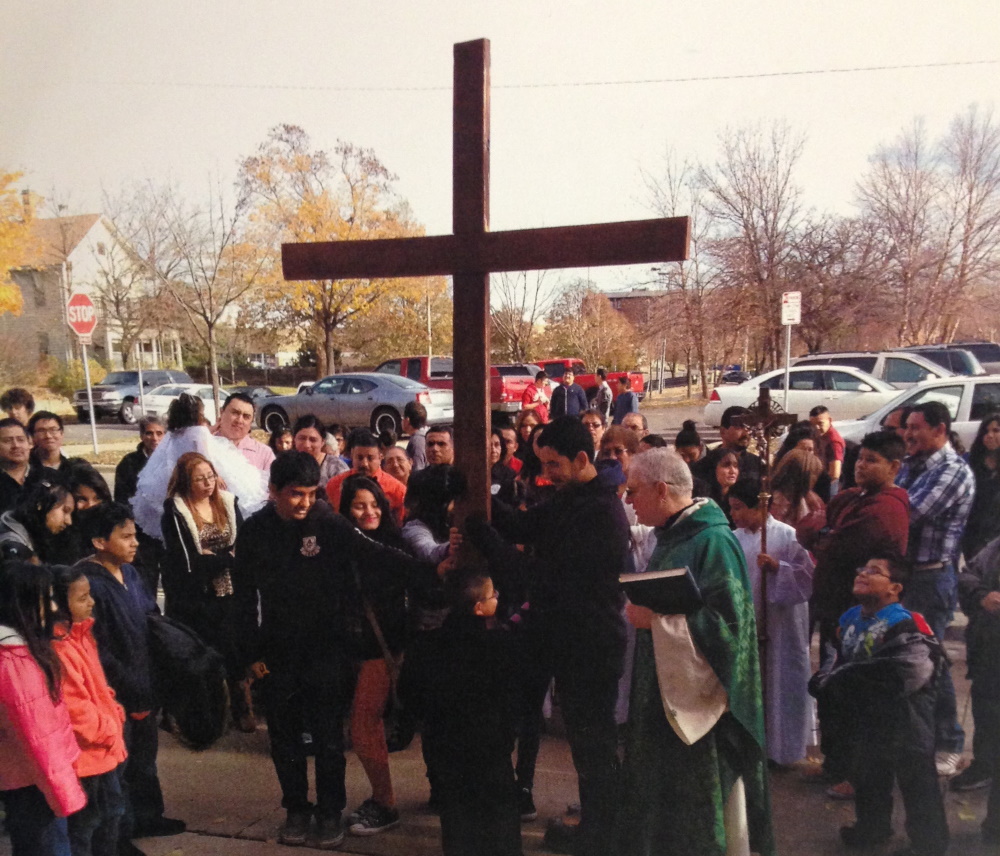This is a question we often get from parish teams. They’ve just read a blog post, a book, or participated in a workshop on the Rite of Christian Initiation of Adults and are excited about the principles they’ve learned. But they wonder why their priests don’t seem to follow them or even know about them. To be fair, we also hear from pastors who ask the same thing about some of their catechumenate teams. So it’s not always just priests who lack training.
Most seminaries and graduate schools of theology do not include much training on the catechumenate rites or on the formation process that should accompany those rites. The training they do receive tends to focus on the history and theology of the initiation rites but little on their actual implementation.
The modern-day catechumenate rites are relatively new, having been developed in their current form for the first time in 1972. So, many older priests would never have received any kind of seminary training on the Rite of Christian Initiation of Adults.
Nevertheless, just as all of us are called to ongoing formation, so too do our priests, deacons, bishops, and pastoral staffs need ongoing training. Especially with a new English translation of the Rite (Order) of Christian Initiation of Adults on the horizon, how can we make sure they learn its principles?
Use your circle of influence
It can be easy to lament that some clergy are uninformed about the mindset and practice of the catechumenate process and just hope seminaries, diocesan offices, and other organizations can fill that gap. But that way of thinking dismisses the teaching of Vatican II which says that all the baptized are co-workers in the mission of Christ through the church.
If the sacraments of baptism, confirmation, and the Eucharist, as the initiation rites say, enable us to carry out Christ’s mission, then a key way that priests will become formed in the catechumenate process is through all of us who are members of the baptismal priesthood!
Every person who has been baptized into Christ has the power and responsibility to influence the co-workers in the mission with whom they interact to help them manifest more clearly the true Christian spirit. We cannot leave it up to the “experts”, however way we define that (clergy, seminaries, diocesan offices, bishops, the pope, etc.). All of us are responsible for the work of helping one another do this mission and do it well.
We start by looking at the people in whom we can affect change and making a decision to use our influence there. Leadership books will call this using our “circle of influence.” First, we must look at ourselves. How can we better understand and implement the mindset of the catechumenal process? Where is our own lack of formation, and what myths about the rite might we be promoting by our own language or practice?
Once we have looked at ourselves, then we keep going wider through our circle of influence: our family members and coworkers; the parishioners in the parish groups we participate in; the people we encounter on Sunday at the parish; our parish staff, clergy, and pastor, etc. And if you don’t have direct influence on your pastor, you probably know someone who does, or someone who knows someone who does.
The principles of the catechumenate are a good barometer of our own need for reorienting ourselves to the dignity of our own baptism.
You have more power (and responsibility) than you might think
The principles of the catechumenate are a good barometer of our own need for reorienting ourselves to the dignity of our own baptism. Therefore, an even more important point is this. We also need to reflect on where we might be resisting or overlooking our own power to make change happen. Instead of focusing on the priest’s vocation to implement the mission, we should first of all focus on our own vocation to do the work of the gospel.
For example, we often hear comments like, “My pastor won’t let me do that.” If that’s the case, then do something else that doesn’t require your pastor’s permission! Here’s a concrete example.
You know that the catechumenate doesn’t have a “season,” but your pastor doesn’t want to do a year-round catechumenate process, insisting on a September to May schedule for meetings.
- But no pastor will prevent you from inviting seekers to come to Sunday Mass any time of the year.
- No pastor will stop you from introducing those seekers to other parishioners or hanging out with them to hear their stories and share yours.
- No pastor will prevent you from praying with those seekers any time of the year, or inviting them to participate in Bible study, or the parish soup supper, or the parish mission, or the parish food pantry.
In fact, your pastor might be delighted! If you do this enough and consistently, over time, your pastor might begin to see that what you are doing is indeed what the catechumenate process calls us to do.
So where does informing and orienting pastors into the mindset and practice of the catechumenate take place? It takes place with all of us.
It is certainly more difficult to do the work that the catechumenate requires if your parish priest is not well formed in this ministry. Nevertheless, we can make change happen by using our own Spirit-filled gifts. One of the principles of the catechumenate is that the journey of faith is a gradual process as each of us moves at the Spirit’s pace. Let that encourage each one of us as we make our way forward together on this ongoing journey of conversion.
Your turn
What does your circle of influence look like in your community? What steps can you take to help others see how the catechumenate can transform your community? Share your thoughts in the comments below.












Great article! I hear so many of fellow catechists concerned about having to “check with father” before doing anything, thinking that he is the expert in all things regarding our faith. Nothing could be further from the truth. They are human beings, like the rest of us, and have their own strenghths and weaknesses. They also have much more to worry about than just our initiation ministry. As catechists, we have a duty to catechize not just our seekers, but our entire parish community, including our pastors, priests, deacons, and staff. We need to recognize our own calling – our experience and training in this ministry – and share it with everyone in the parish, which often means catechizing those who oversee our parish communities. When we “catechize up” like this, you can build a much better extended team.
“Catechize up!” I love that, John! As we continue to grow in our understanding of being a synodal church and how to accompany one another, this is a good reminder that we walk together and help one another learn along the way. Thanks for your insights!